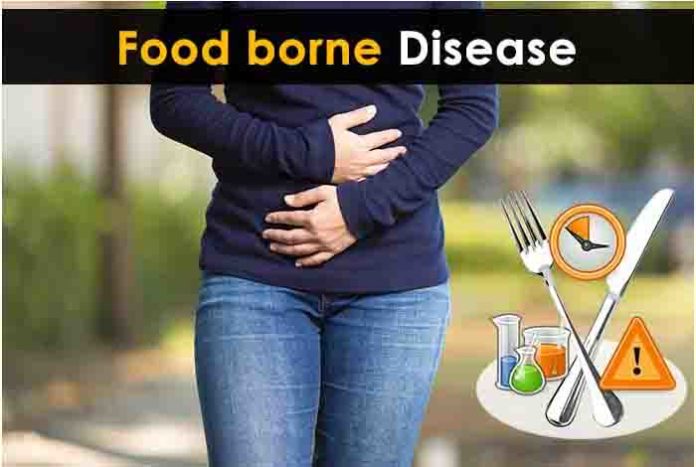
The Centre for Disease Prevention and Control (CDC) says that around 16% of Americans or a whopping 48 million of them fall sick from foodborne illness. While most cases are not serious and the affected individuals may experience nausea, vomiting, stomach cramps and diarrhea for a day or two, there are so many, who get admitted to the hospital, of which, 2 to 3% die. Any food can get contaminated with food-borne diseases. Viruses, bacteria, parasites, chemicals and toxins can infect the food.
Some groups of people like pregnant women, elderly, people with some health conditions like diabetes, HIV, cancer and those, who have weak immune systems, are particularly more prone to getting attacked by the food-borne diseases.
People feel that food-borne illnesses are short term, i.e., affecting for a period of 24-48 hours. It may be the case for some, but there could be long-term health effects like reactive arthritis and irritable bowel syndrome (IBS).
You cannot completely avoid foodborne illnesses, but you can significantly curtail your chances of getting ill by:
- Knowing beforehand which foods have more chances to get contaminated
- Knowing where high risk is present
- Learning how to safely handle food
Foods That Have the Highest Chances of Contamination
- Chicken, pork, turkey and beef
- Fruits and Vegetables
- Cheese, dairy products and milk
- Raw flour and eggs
- Sprouts
- Seafoods
Reasons for Contamination of Food
Foods can get infected in the fields, while processing or at other levels in the food-production cycle. Foods may get contaminated with animal feces. Bacteria may grow due to bad conditions in a manufacturing or processing plant. Sometimes, workers in restaurants do not wash their hands properly and this can lead to spreading of the disease. It could also be possible that irrigation of the field may be done with contaminated water and this affects vegetables and fruits prior to getting harvested.
Cross contamination can also cause foodborne illnesses. For example, if you have prepared raw chicken and further, you haven’t washed the surface before making vegetables, then the toxins or bacteria from the chicken may contaminate the vegetables. Among the predominant germs that cause foodborne illnesses are Salmonella, Clostridium perfringens, Norovirus, Staphylococcus aureus and Campylobacter.
According to Dana Hunnes, dietitian at Ronald Reagan UCLA, raw produce is the most common cause. It is then followed by animal protein, which is not cooked at the right or appropriate temperature.
Eating Out or Eating at Home – Which One Is Riskier?
As per the Centers for Disease Control and Prevention (CDC), foodborne illnesses have more chances of initiating at restaurants than at home. Hunnes adds that some foodborne diseases that start at home may not be very serious. When you are eating outside, make sure to check the inspection score of a restaurant. If you are ordering something that has eggs, fish or meat, ensure that the food has been cooked thoroughly. Do not have it if you are doubtful about the same.
Also know, from where the ingredients in the dish are coming if an outbreak that has occurred in a particular region includes some food. Bigger restaurants are generally more aware about outbreaks. They have employed staff for food safety that regularly monitors the food.
Safety Measures at Home
 Know How to Prevent Foodborne Illness
Know How to Prevent Foodborne Illness
Be aware of outbreaks. Practice proper kitchen habits:
- While preparing meat, eggs or poultry, use a food thermometer. A digital model is a better option. Know about different temperatures needed to cook different foods.
- When you are dealing with raw eggs, wash your hands and keep the cooking surface clean.
- If you use a sponge for cleaning, sanitize it daily. It is a breeding ground for many germs.
- While handling different foods, wash your hands with water and soap to prevent cross-contamination. It is best to use a paper towel. Washing will eliminate the non-sticky bacteria and the rest will come off from the friction of the towel.
- Wash produce with water and also rinse it well
- Utensils must be washed properly
- Perishable food items should be refrigerated in two hours or if the temperature outside is more than 90 degrees, do it within one hour.










